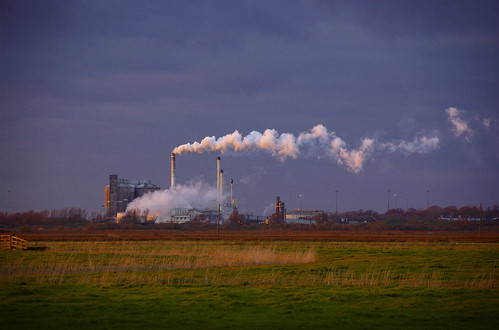Even as news related to global warming repeatedly hits the front pages of newspapers, a large number of people continue to question its credibility and authenticity. Some believe that the changes taking place are too small to actually make a difference while others dismiss the entire concept. However, statistics tell a completely different story. Over the past few decades, global warming has indeed resulted in some major climate changes.
 University of Salford / CC BY 2.0
University of Salford / CC BY 2.0 Global Warming and Climate Change
So, is our weather really getting wetter? The evidence increasingly tends to establish this fact. For instance, according to statistics revealed by the UK Met Office, 2012 was the second wettest year ever, as the country received 1330.7 mm of rainfall. That is only 6 mm less than the record set as recently as 2000. The United Kingdom also experienced drought-like conditions in the early months of the very same year. This is a classic example of the effects of global warming on the climate of a particular region.
 mira66 / CC BY 2.0
mira66 / CC BY 2.0 How Does Global Warming Lead to Climate Change?
Every year, increasing amounts of greenhouse gases are released into the environment. According to a study conducted in Australia, the amount of excessive energy produced as a result of the emission of greenhouse gases is equivalent to the energy produced through half a billion Hiroshima bomb explosions every year. One can only imagine the pressure being exerted on the atmosphere.
This excessive energy causes a rise in the temperature of the planet. As the earth warms up, the air is able to retain a greater amount of water vapour. The United Kingdom has witnessed a rise of about 0.7C in the temperature in the last four decades. This would increase the moisture retaining capacity of air by almost 4%, in turn, leading to wetter weather conditions.
At the same time, researchers have found a cause and effect relationship between the shrinking of ice caps in Antarctica and a wetter climate in the United Kingdom. This was demonstrated by a study conducted by scientists at the University of Sheffield. These scientists claimed that shrinking ice caps are responsible for major changes in global wind patterns. As a result, many countries have experienced abnormal weather conditions.
One need not go too far to witness this phenomenon as London itself has seen extreme weather conditions in the year of 2012. In fact, the effects have been evident ever since 2000. According to the Met Office, four of the five wettest years have occurred since 2000. Additionally, the linear increase in the amount of rainfall received has also been accompanied by irregular shifts in the pattern of precipitation. For instance, the daily levels of rainfall have increased tremendously since pre-industrial times.
There is a definite pattern in play here. Higher rainfall and wetter seasons are not chance occurrences. Rather, things seem to be getting worse every year. Even if you haven’t felt these changes yourself, research is increasingly indicating that global warming is responsible for climate change.
Author:
Terry Piece is a keen environmentalist and blogger for Sealskinz.com a world reknown brand for waterproof gloves, hats & socks. Terry volunteers for the VSO in his spare time and takes an active park in local politics and environmental issues. He regularly tweets here.


